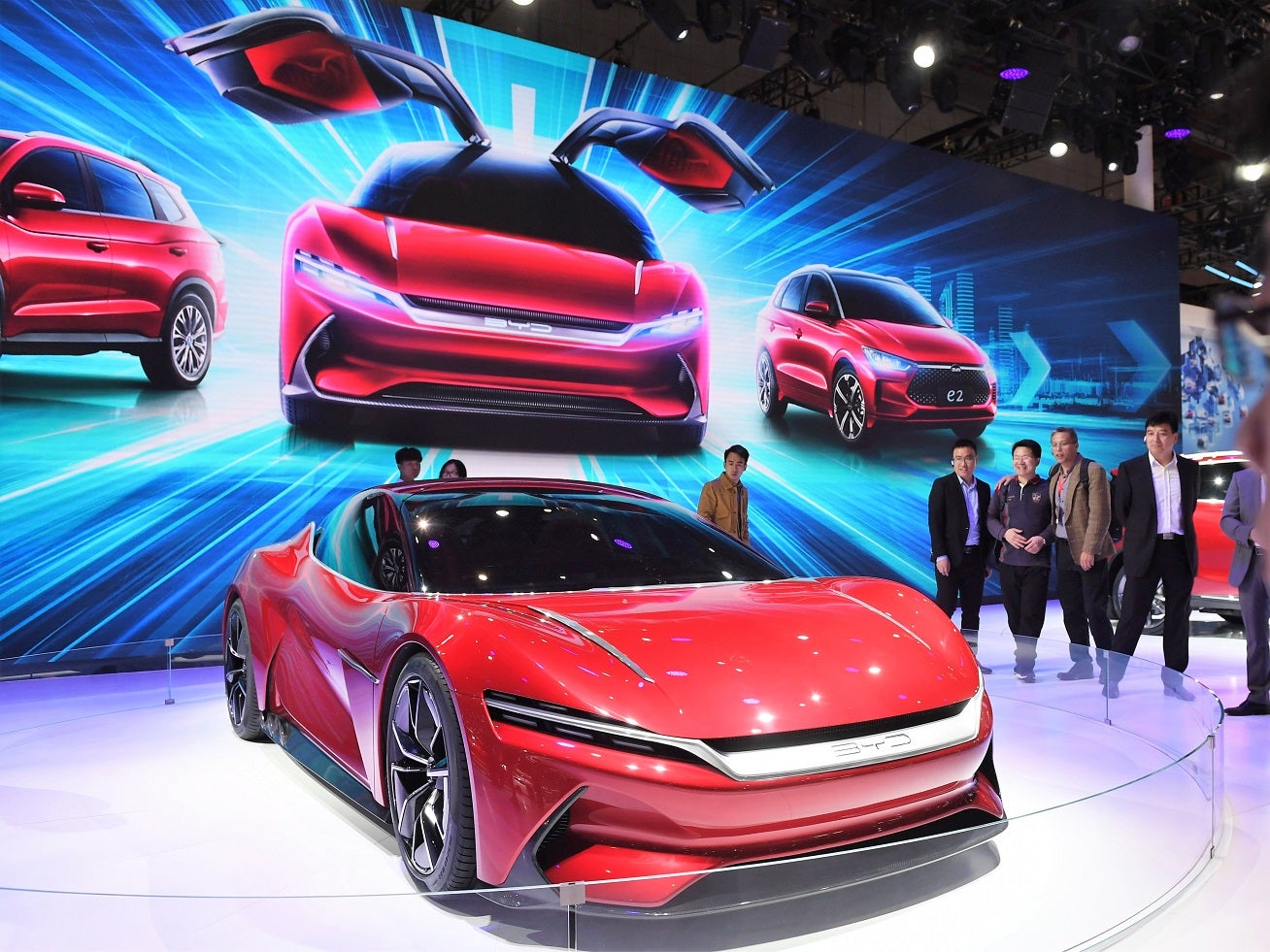Tesla loses spot as world’s top electric car seller
Warren Buffett-backed BYD saw EV sales shoot up 300 per cent in 2022, a decade after Elon Musk said he did not see them as a competitor

Your support helps us to tell the story
From reproductive rights to climate change to Big Tech, The Independent is on the ground when the story is developing. Whether it's investigating the financials of Elon Musk's pro-Trump PAC or producing our latest documentary, 'The A Word', which shines a light on the American women fighting for reproductive rights, we know how important it is to parse out the facts from the messaging.
At such a critical moment in US history, we need reporters on the ground. Your donation allows us to keep sending journalists to speak to both sides of the story.
The Independent is trusted by Americans across the entire political spectrum. And unlike many other quality news outlets, we choose not to lock Americans out of our reporting and analysis with paywalls. We believe quality journalism should be available to everyone, paid for by those who can afford it.
Your support makes all the difference.Tesla is no longer the world’s most popular electric car company after China’s BYD topped the list of global sales.
The Shenzen-based automaker, which is backed by Warren Buffett’s Berkshire Hathaway investment group, sold 641,000 electric and plug-in hybrid vehicles in the first half of 2022.
In the same period, Tesla sold 564,000 electric cars after struggling with supply chain and production issues in China related to Covid restrictions.
BYD’s sales represented a 300 per cent increase from the first six months of 2021, coinciding with China’s own rise as a leading electric vehicle producer.
The Asian country exported more than half a million EVs in 2021 – twice as many as 2020. The figure increasingly consists of Chinese brands or Chinese-owned European brands like Volvo and MG Motor.
BYD’s ascendency has seen its share price rise more than 24 per cent since the start of the year, and more than 500 per cent over the last five years.
Company filings published this week also revealed that production of fossil fuel-powered vehicles fell to zero in June 2022, down from more than 17,000 in the same month last year.
The firm also overtook South Korea’s LG to become the world’s second-largest producer of EV batteries, behind only Contemporary Amperex Technology (CATL).
Tesla boss Elon Musk previously dismissed BYD’s electric vehicle ambitions, laughing in an interview with Bloomberg in 2011 and saying that he did not see them as a competitor.
“Have you seen their car?” he said. “I don’t think they have a great product. I don’t think it’s particularly attractive, the technology is not very strong... I think their focus is, and rightly should be, on making sure they don’t die in China.”

Join our commenting forum
Join thought-provoking conversations, follow other Independent readers and see their replies
Comments